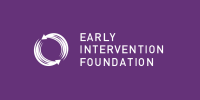About The early intervention foundation
The Early Intervention Foundation: Championing Effective Early Intervention to Improve Children's Lives
The Early Intervention Foundation (EIF) is a UK-based charity that champions and supports the use of effective early intervention to improve the lives of children and young people at risk of experiencing poor outcomes. The foundation was established in 2013 with the aim of promoting evidence-based early intervention policies and practices across different sectors, including health, education, social care, and criminal justice.
At EIF, we believe that investing in early intervention can make a significant difference in preventing problems from escalating and reducing the need for costly interventions later on. Our work is based on rigorous research evidence that shows how effective early intervention can help children overcome challenges such as poverty, neglect, abuse, mental health issues, or learning difficulties.
Our mission is to ensure that every child has access to high-quality early intervention services that are tailored to their needs and delivered by skilled professionals who understand the importance of prevention. We work with policymakers, practitioners, researchers, parents/carers and young people themselves to promote best practice in early intervention across different settings.
What do we mean by "early intervention"?
Early intervention refers to a range of services or programmes designed to support children's development from birth up until their teenage years. These services aim to identify potential risks or problems at an early stage before they become more serious or entrenched. Examples of early interventions include:
- Parenting programmes: these are designed to help parents/carers develop positive parenting skills such as communication techniques or behaviour management strategies.
- Health visiting: this involves regular visits by trained professionals (such as nurses) who provide advice on child health and development.
- Speech therapy: this helps children who have difficulties with speech or language development.
- Mental health support: this includes counselling or therapy for children who experience emotional distress or mental health conditions.
- Education programmes: these focus on improving educational outcomes for disadvantaged children through targeted interventions such as literacy support or mentoring.
Why is early intervention important?
Early intervention has been shown to have a range of benefits for children, families and society as a whole. These include:
- Improved outcomes for children: early intervention can help children develop the skills and resilience they need to succeed in life, such as social skills, emotional regulation, or academic achievement.
- Reduced costs: investing in early intervention can save money in the long run by reducing the need for more costly interventions later on (such as hospitalisation or criminal justice).
- Improved wellbeing: early intervention can improve the mental health and wellbeing of children and their families by addressing issues such as stress, anxiety or depression.
- Increased social mobility: by providing equal opportunities for all children to access high-quality services regardless of their background or circumstances, early intervention can help reduce inequalities and promote social mobility.
What does EIF do?
EIF works across different areas to promote effective early intervention policies and practices. Our work includes:
1. Research
We conduct independent research into what works in early intervention across different sectors. We use rigorous methods such as systematic reviews or meta-analyses to identify evidence-based interventions that have been proven effective.
2. Evidence synthesis
We synthesise existing research evidence into accessible formats that are easy to understand for policymakers, practitioners and parents/carers. We produce briefings, reports or toolkits that provide practical guidance on how to implement evidence-based interventions.
3. Quality assurance
We provide quality assurance frameworks that enable organisations delivering early interventions to assess their own practice against best practice standards. This helps ensure that services are delivered consistently at a high standard across different settings.
4. Capacity building
We offer training programmes and support networks for professionals working in the field of early intervention so they can develop their knowledge and skills around evidence-based practice.
5. Advocacy
We advocate for policy changes at national level that support effective early intervention practices across different sectors (such as education reform or mental health policy). We also engage with local authorities, charities and other stakeholders to promote best practice in early intervention.
What impact has EIF had?
Since its establishment in 2013, EIF has made significant progress in promoting effective early intervention practices across different sectors. Some of our key achievements include:
- Developing a range of evidence-based tools and resources that have been used by thousands of practitioners across the UK.
- Conducting independent research into what works in early intervention, which has informed policy changes at national level.
- Providing quality assurance frameworks that have helped organisations delivering early interventions to improve their practice.
- Building a network of professionals working in the field of early intervention who share best practice and learn from each other's experiences.
Our work has been recognised by policymakers, practitioners and researchers as making a valuable contribution to improving outcomes for children and young people. We continue to strive towards our vision of a world where every child has access to high-quality early intervention services that enable them to reach their full potential.

